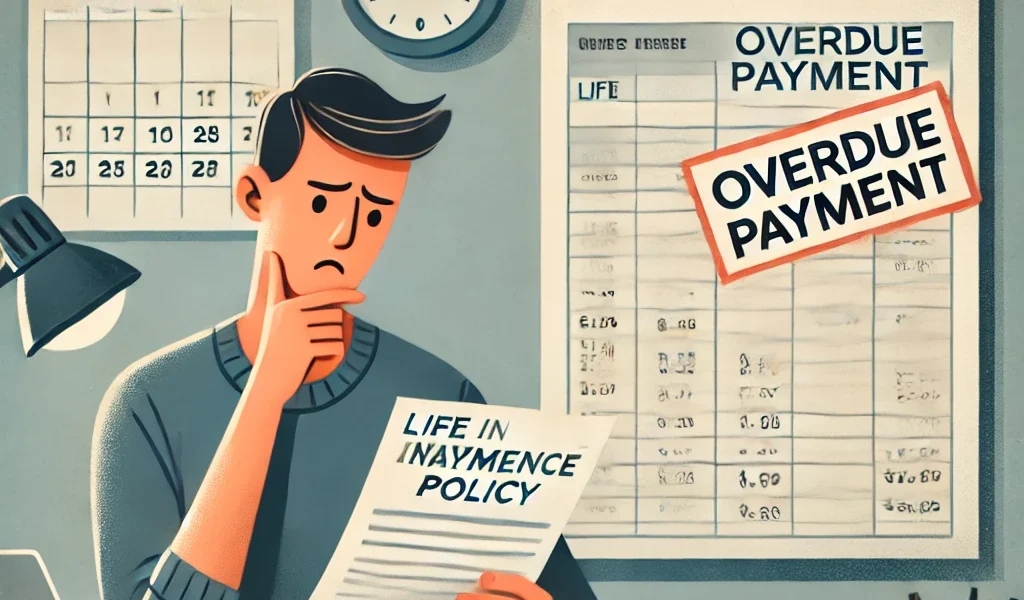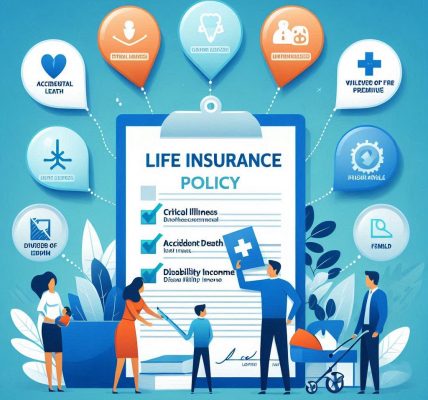Life insurance is a long-term financial commitment designed to protect your loved ones and provide financial security. However, life is unpredictable, and there may come a time when you struggle to pay your premiums or decide to stop making payments altogether. But what happens if you stop paying your life insurance premiums? Does your coverage end immediately? Are there penalties or options to keep your policy active?
In this guide, we’ll explore the consequences of missing life insurance payments, the grace period, reinstatement options, and ways to ensure continuous coverage.
1. Understanding the Importance of Life Insurance Premiums
Life insurance premiums are the regular payments you make to keep your policy active. These payments contribute to:
- The death benefit paid to your beneficiaries
- Cash value accumulation (for permanent life insurance)
- Administrative costs and operational expenses of the insurer
When you stop paying these premiums, your policy may lapse, reducing or eliminating the benefits your family would receive. However, the exact outcome depends on the type of life insurance you have.
2. What Happens When You Miss a Payment?
a) The Grace Period
Most life insurance companies provide a grace period of 30 to 60 days after a missed payment. During this time:
- Your coverage remains active.
- You can pay the missed premium without penalties.
- If you pass away, the insurer may deduct the unpaid premium from the death benefit.
If the premium is not paid within the grace period, the policy may lapse or enter a nonforfeiture option if applicable.
3. Consequences of Stopping Life Insurance Payments
a) Term Life Insurance
Term life insurance provides coverage for a set period (e.g., 10, 20, or 30 years). If you stop paying premiums:
- The policy lapses, and coverage ends.
- There is no cash value to recover.
- You may need to buy a new policy at a higher rate if you want coverage later.
b) Whole Life Insurance
Whole life insurance includes a cash value component that grows over time. If you stop paying premiums:
- The policy may use the cash value to cover missed payments.
- If the cash value runs out, the policy lapses.
- You might have the option to convert it into a reduced paid-up policy with a smaller benefit.
c) Universal Life Insurance
Universal life insurance has flexible premiums and a cash value component. If you stop paying premiums:
- The insurer may deduct premiums from the cash value to keep the policy active.
- If the cash value is exhausted, the policy lapses.
- You may need to pay additional amounts to restore coverage.
4. Options to Keep Your Life Insurance Policy Active
If you’re struggling to make payments, consider these options instead of letting your policy lapse:
a) Reduce Coverage Amount
Some insurers allow you to lower your death benefit to reduce premium costs. This keeps some coverage intact while making it more affordable.
b) Convert to a Paid-Up Policy
For whole life insurance, you might be able to convert it into a paid-up policy, meaning you no longer pay premiums, but the death benefit is reduced.
c) Use Cash Value to Pay Premiums
If you have permanent life insurance, you may be able to use the cash value to cover premiums until you can resume payments.
d) Request a Premium Loan
Some policies allow you to borrow against the cash value to pay premiums, preventing a lapse while keeping coverage in place.
e) Switch to a More Affordable Policy
You can explore switching to a different term life policy or a lower-cost plan with your current insurer.
f) Talk to Your Insurer
Before stopping payments, contact your insurer to discuss available options. Some insurers offer temporary premium waivers for financial hardship.
5. Can You Reinstate a Lapsed Life Insurance Policy?
If your policy lapses due to non-payment, you may still be able to reinstate it. Most insurers allow reinstatement within one to five years if you meet the following conditions:
- Pay missed premiums (sometimes with interest).
- Provide proof of insurability, which may require a medical exam.
- Sign a reinstatement application acknowledging the missed payments.
Reinstating your policy can be a cost-effective alternative to buying a new policy, especially if your health has changed.
6. What If You No Longer Need Life Insurance?
If you believe you no longer need life insurance, consider these alternatives before stopping payments:
a) Sell Your Policy (Life Settlement)
If you’re over a certain age (often 65+), you may be able to sell your policy for a lump sum payout through a life settlement.
b) Convert to an Annuity
Some whole or universal life policies allow you to convert the cash value into an annuity, which can provide retirement income.
c) Donate the Policy
You can donate your policy to a charity or organization that can benefit from the payout.
7. Final Thoughts: What’s the Best Decision for You?
Stopping life insurance payments can have serious consequences, including the loss of financial protection for your family. Before making a final decision, consider:
✅ Your current financial situation
✅ Whether your family depends on your policy
✅ Alternative options to keep the policy active
If you’re unsure about your next steps, consult a financial advisor or your insurance provider to explore the best course of action.
By understanding how life insurance works and your available options, you can make an informed decision that secures your financial future.




